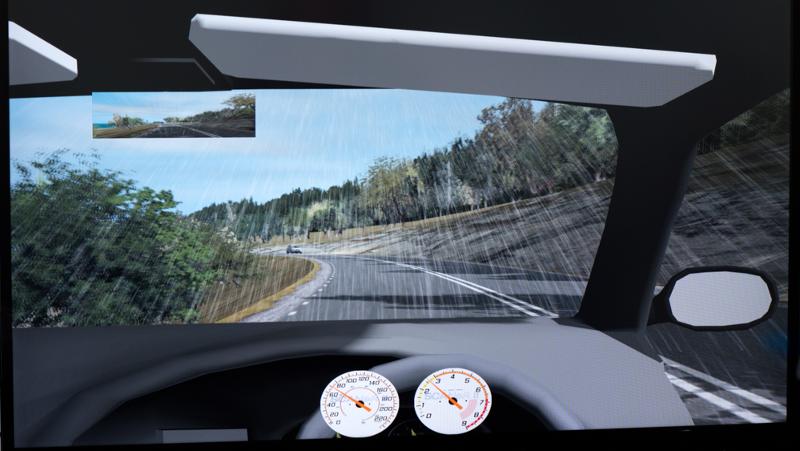
Test your driving skills, pilot rubbish-recovering reef robots, and DIY strawberry DNA – these are some of the fun QUT science activities in store for visitors to the Street Science! showcase at this month's World Science Festival Brisbane (WSFB).
Our researchers and scientists will be hands-on at Street Science! March 24-25 at the South Bank Parklands in both the Discover, Explore & Learn with QUT tent and in other areas around the cultural forecourt.
Meet robotics researcher Nicole Robinson and Andy, the NAO Robot, on the Osmosis Stage, and pop into Reef Think Tank for the first public showing of RangerBot, QUT’s next-generation ‘Swiss army knife’-style autonomous robo reef protector.
At the Reef Think Tank you can also drive a mini IRBEE (Interactive Robot-Boats for Environmental Education) in a mini pool to pluck out plastic and other rubbish that impacts the Great Barrier Reef.
QUT experts are also part of WSFB’s packed program of discussions, workshops and stage shows in Brisbane and around Queensland, including Bespoke Bodies, a session hosted by ABC science broadcaster Robyn Williams that explores breakthroughs in regenerative medicine helping our bodies keep pace as we live longer.
Here’s some of what you’ll find in the QUT Street Science! tent:
Good driver? New driver? Never driven?
No driver’s licence is needed to get behind the wheel of the QUT CARRS-Q driving simulator. Visitors can test their skills and reactions in a variety of situations and road conditions, from torrential rain to encountering a rogue kangaroo. Drivers’ efforts will be streamed on the big screen to entertain – and educate – those waiting in line.
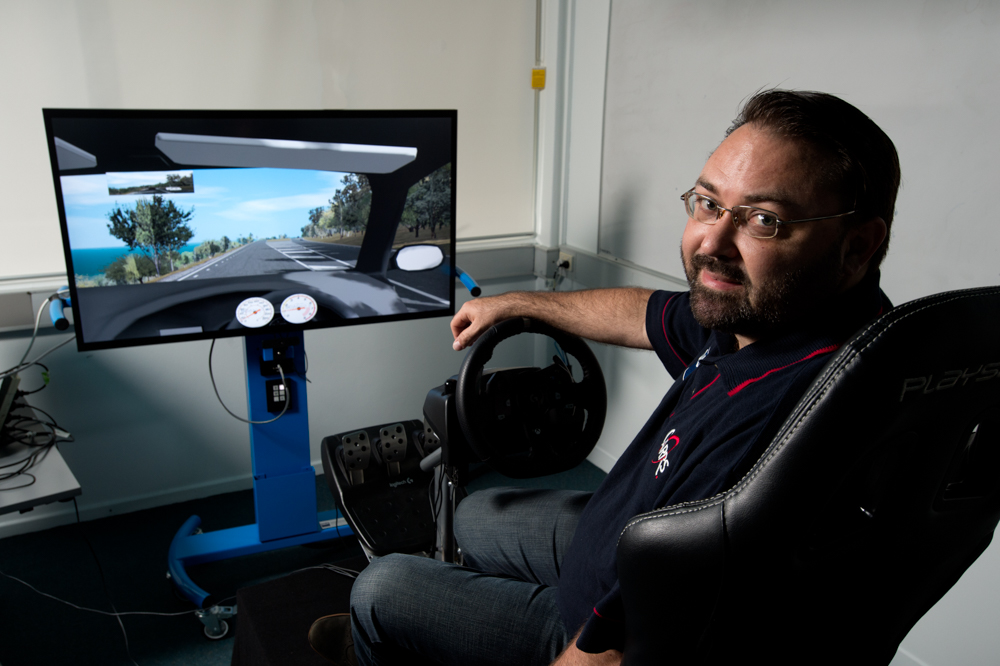
Formulate Pharmacy Fun
Put your senses to the test to formulate a pharmaceutical solution to the zombie apocalypse! Dr Yasmin Antwertinger and Dr Esther Lau from the Faculty of Health will explain what goes into making medicines while visitors can sniff scents that may make pills palatable (even for pets!). Watch effervescence and tiny aquatic crustacean testers in action, and learn how to mix a protective lip balm to kiss goodbye to those pesky zombies.
Holy strawberries Batman, I’m in a jam!
Join our biomedical students and mash up some frozen strawberries to see the plant’s DNA. Find out just how easy it is to extract DNA and learn how to do it at home yourself.
Wearable Health
Planning to soak up some festival sunshine? Faculty of Health research fellow Dr Elke Hacker will be handing out free sunscreen and UV skin stickers that are part of her research into how long sunscreen lasts on the body. Pick up a patch, slap it on and when the sticker turns purple you’ll know it’s time to re-apply. Dr Hacker will also have details about health studies that are seeking participants.
Cool and Covered
Step right up and take a spin on our interactive fabric wheel for fashionable sun protection. Discover how much light and UV penetrates through fabrics of different colours and weaves. Maybe that broadbrim hat is not giving you the cover from the sun’s harmful rays that you think it is! The fabric wheel is a collaboration between Louise Baldwin from the Institute of Health and Biomedical Innovation and Dean Brough of the Creative Industries Faculty. After your spin, learn more from Sunny the UV Educator.
Cool Runnings
Find out more about the innovative free app Cool Runnings developed with iPug by Dr Leila Cuttle from the Faculty of Health, who researches burns prevention and first aid in children. The app explains some of the common burn hazards for kids, such as two-minute noodles spilt from the microwave, and an inviting sandpit that may actually be hotter than an oven. The best first aid burns treatment Dr Cuttle has discovered is cool running water – for a full 20 minutes – to help burns heal faster with less scarring and need for surgery or time in hospital.
Our QUT experts are also at:
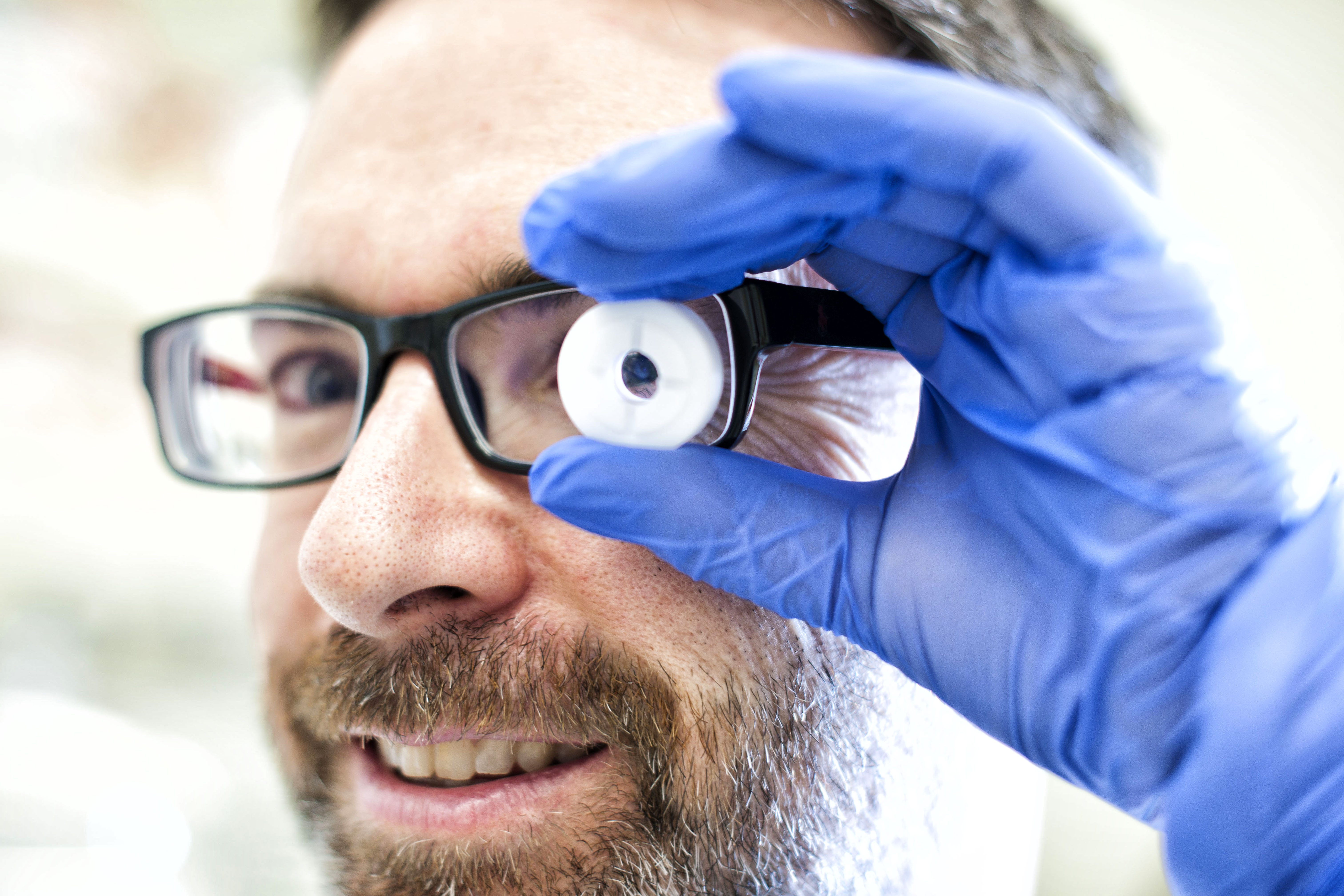
Bespoke Bodies: The Path to Human Regeneration
In the past half century, science has made extraordinary strides in regrowing, replacing and regenerating human cells, organs and limbs. Cell biologist Professor Damien Harkin from the Faculty of Health joins panellists in this discussion on the ‘science of self-renewal’ moderated by ABC science broadcaster Robyn Williams. Professor Harkin is investigating innovative ways to preserve sight and repair the eye through the use of stem cells grown on novel scaffolds, including those produced from silk proteins.
Chasing Longevity: The Quest for Longer Life
Joining the panel to explore the concept that centenarians may one day be considered ‘young’ is Associate Professor Derek Richard, scientific director of the Cancer and Ageing Research Program, which is hot on the trail of a new drug to slow ageing and help prevent cancer. He and a multidisciplinary team of scientists, clinicians and surgeons are approaching cancer in a completely new way by concentrating on genetic instability, the ultimate cause of all cancers. They have identified a key protein that is increased in all cancers, and discovered that when the protein is blocked the cancer cells die. Now the search is on to develop a drug to directly target this rogue protein in cancer cells.
Brain Food Breakfast: Sporting Success – Nature Vs Nurture
Does genetic make-up equate to athletic prowess and could gene therapies be used to boost performance? And how would sports administrators detect and deal with such ‘gene doping’? These are some of the questions likely to be canvassed by panellist Distinguished Professor Matt Brown, Director of Genomics, whose research includes examining the role of genes as a predictor of athletic performance. As genomic science rapidly evolves, will biology one day be the greatest determiner of sporting talent and elite success?
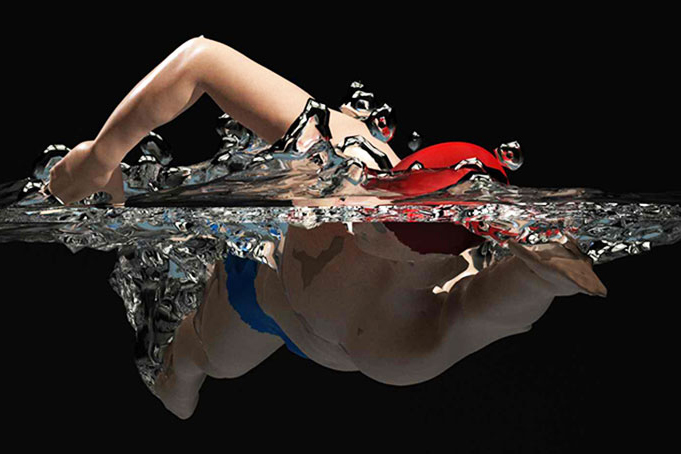
A Sporting Chance: Building the Ultimate Athlete
Winners are grinners, but can some athletes push things too far in the pursuit of excellence? Professor Gene Moyle from the Creative Industries Faculty joins a panel discussion on the interplay between science and sport. She’ll explore the psychology of the modern athlete, including the roles technology and neuroscience play in preparation and performance. Professor Moyle is a world-renowned performance psychology expert who has worked with three Australian Winter Olympics teams.
The Language of the Universe: Can Mathematics Explain Everything?
Maths underpins, literally, everything in our daily lives, yet remains something of a quiet achiever. Distinguished Professor Kerrie Mengersen, Statistics Research Chair, will moderate this panel conversation on the creativity and power of maths to explore the outer limits of our world and the human mind.

Science Gets Social: The Art of Cryptology
Mobile phones, web browsing, messaging apps – our world is full of codes. Cryptographer Dr Leonie Simpson will explain how the ancient art of cryptology has evolved to keep our data safe in the modern world.
Science Gets Social: Scully to your Mulder – When Fiction Becomes Fact
Do wormholes really exist? Is travelling at warp speed no longer light years away? Paul Van Opdenbosch from our Creative Industries Faculty joins an enlightening panel discussion that sees scepticism and imagination go head-to-head – as he helps to sort science fact from science fiction.
Creating On Screen Chemistry
Distinguished Professor Kerrie Mengersen and Professor Michael Milford join a panel to explore how scientific research can be successfully translated into engaging and compelling screen content at a special Screen Queensland event.
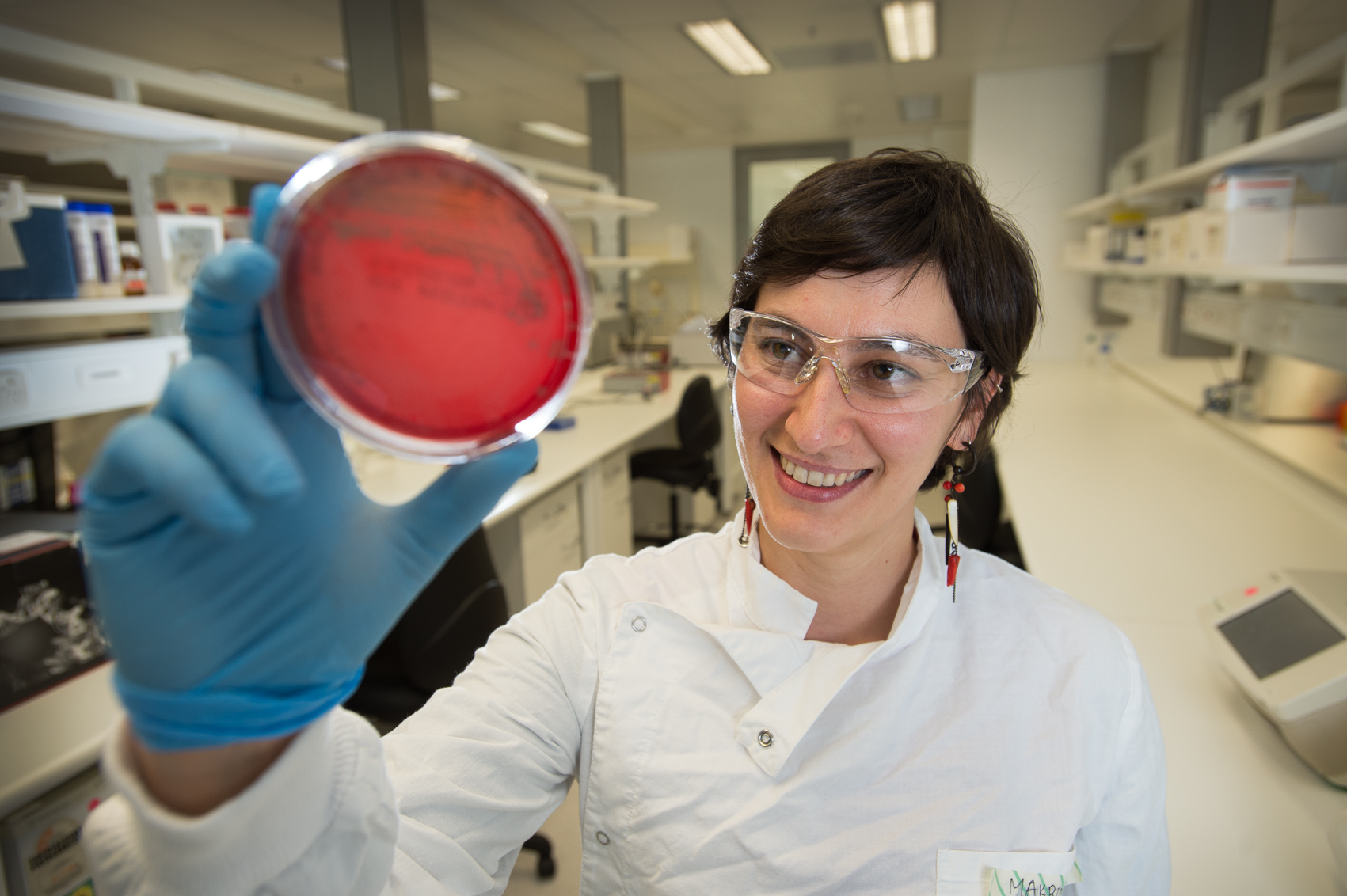
Bugs & Drugs: The Resistance Wars – Toowoomba
Microbiologist Dr Makrina Totsika joins a multidisciplinary panel to discuss her research on new therapeutics, called anti-virulence drugs, being developed as alternative strategies to fight ‘superbugs’ causing antibiotic-resistant infections. These drugs aim to disarm, rather than kill, bacteria by inhibiting their molecular weapons (virulence factors) and could selectively eliminate infecting bacteria without harming the body’s ‘good’ microorganisms. This year she received funding from the NHMRC and the Ramaciotti Foundations to test the therapeutic efficacy of these novel anti-virulence drugs in preclinical models of antibiotic-resistant infection. Her work could provide next-generation antimicrobials urgently needed worldwide.
Cool Jobs: Townsville
Townsville locals might know sustainable energy expert Dr Wendy Miller as superhero ‘Dr Wen’ from the Tropical Homes Superhero Challenge project. For the past couple of months she’s been showing householders how heat-seeking science can help them hunt down those home energy vampires that drive up their power bills. At this session she’ll share with students her unconventional career path to becoming a scientist, the cool places her work has taken her, and the devices she uses to help us understand how to keep our cool.
Media contact:
Rose Trapnell, QUT Media team leader, 07 3138 2361, 0407 585 901, media@qut.edu.au


